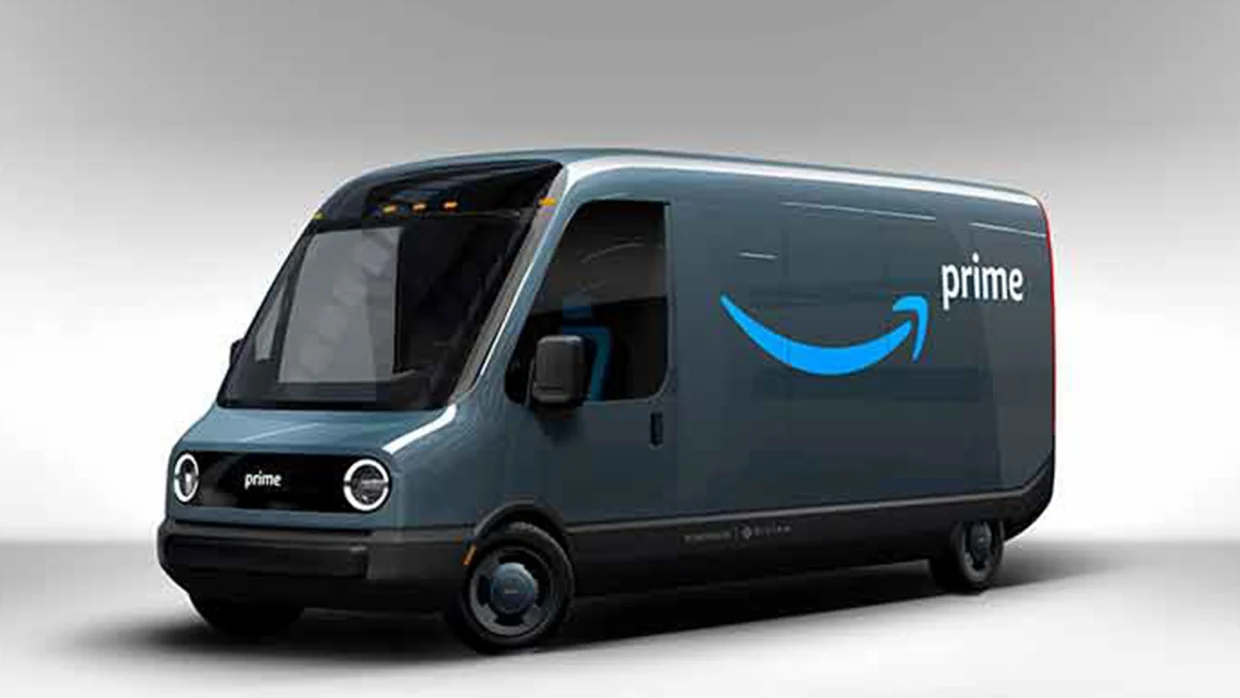E-commerce giant Amazon and automaker Ford both have stakes in a company that is becoming a financial headache.
Amazon and Ford operate in two different sectors.
The first is in online commerce, streaming, sport and, above all, cloud computing, an El Dorado that Microsoft and Google also battle for.
As for Ford, after decades of focusing on making vehicles with internal combustion engines, Dearborn has focused on transforming itself into a manufacturer of electric vehicles.
But if the one doesn't make cars and the other is not an e-commerce juggernaut, they share a common priority: Both are betting on clean vehicles.
Amazon, which is forever building out its logistics network, wants to make sure it stays ahead in the race for fast product delivery. Ford, for its part, wants to ensure that the EV gap with Tesla does not widen to the point that it's unbridgeable.
It was these concerns that somewhat motivated their equity investments in Rivian, the manufacturer of electric pickups, vans and SUVs, which presents as one of Tesla's main rivals.
These investments initially paid off. Rivian Automotive’s IPO last November generated an about $12 billion gain for Amazon, for example.
Amazon owned 17.74% of Rivian as of Dec. 31 and Ford owned 11.42%, according to documents filed with the Securities and Exchange Commission.
Rivian Faces a Lot of Headwinds
But Rivian's horizon has darkened somewhat due to numerous problems related to its production activities.
Like the rest of the auto industry, Rivian has been unable to produce the number of cars that its capacity enables.
The industry points to several factors, but in particular auto-supply chains remain messy. Carmakers have run short of parts, especially the semiconductors that have become integral to vehicles.
Rivian and rivals are also facing rising raw-material prices, which are increasing its costs.
Finally, the upstart vehicle manufacturer is experiencing the classic problems of maturity linked to the rise in production rates. "Our initial deliveries for the R1T and R1S were delayed, and our production ramp is taking longer than originally expected due to a number of reasons," Rivian said early April.
"The cascading impacts of the covid-19 pandemic, and more recently the conflict in the Ukraine, have impacted our business and operations from facility construction to equipment installation to vehicle component supply."
Rivian was founded in 2009 and went public in 2021. From facilities in Normal, Ill., the carmaker produces three vehicles: the R1T electric pickup, the R1S electric SUV, and the RCV electric commercial van.
Rivian plans to open a second production site, east of Atlanta, in 2024. And it plans to manufacture 400,000 vehicles a year, compared with 1,015 units in 2021.
At the beginning of March, the company had said that the Normal factory had capacity to produce 50,000 vehicles in 2022, but due to supply-chain difficulties, Rivian would manufacture only half that number -- 25,000.

Rivian Is a Loss-Maker for Amazon and Ford
These operational difficulties are reflected on the stock market, as Rivian shares have slumped 69% this year. The market capitalization at Rivian has shrunk by $63.4 billion, to $28.2 billion, in this four-month period. No surprise, then, that the shares of Amazon and Ford have also been hit.
Another point: Companies in their earnings reports must update the fair values of the securities they hold. These securities are usually valued in terms of market capitalization, by using the values on the last trading day of a quarter.
Rivian shares lost 52% -- more than half -- of their value from Dec. 31 through March 31.
"We reported an overall net loss of $3.8 billion in the first quarter," Brian Olsavsky, Amazon's chief financial officer, told analysts on April 29 during the first-quarter-earnings call.
"While we primarily focus our comments on operating income, I'd point out that this net loss includes a pre-tax valuation loss of $7.6 billion included in nonoperating expense from our common-stock investment in Rivian Automotive."
This impairment contrasts with the fourth quarter of 2021, when Amazon's stake in Rivian gave the e-commerce giant a $12 billion gain.
Ford, for its part, posted a net loss of $3.1 billion from January to March. In the first three months of 2021, the maker of the hugely popular F-150 pickup had posted net income of $2.3 billion.
The veteran carmaker said that its loss stemmed from elements external to its operations.
"A net loss of $3.1 billion was primarily attributable to a mark-to-market loss of $5.4 billion on the company’s investment in Rivian. Adjusted earnings before interest and taxes were $2.3 billion," Ford said.
Ford’s stake in Rivian was valued at $5.1 billion on March 31, down more than half from $10.6 billion at the end of 2021, the company said.
Neither Amazon nor Ford will say whether they intend to reduce their stakes in Rivian. Asked about the matter, Jim Farley, CEO of Ford, declined to comment.
"As we near the, I think, 180-day lockup expiry on your investment in Rivian, how are you thinking about the options available to you in terms of this investment going forward?" J.P Morgan analyst Ryan Brinkman asked Farley during the earnings' call.
"Are you maybe more inclined to retain some or all of the stake given the recent decline in Rivian shares?"
"Unfortunately at this point, we're not going to comment on Rivian," Farley responded.
